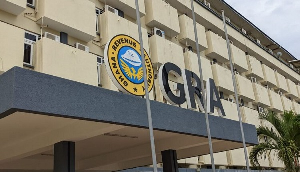The Ghana Health Service (GHS), based on the World Health Organisation’s (WHO) new guidelines and the local evidence, has amended the discharge policy for COVID-19 patients.
Dr Patrick Kuma-Abaoagye, the Director-General of the GHS, said the decision to revise the COVID-19 discharge policy was reached by the Service after consultations with relevant stakeholders such as health directors and scientists.
The Director-General made the disclosure on Thursday in Accra during the meet the press engagement, which was organised by the Ministry of Information to give an update on the COVID-19 pandemic.
Dr Kuma-Abaoagye said under the new discharge policy, patients who were asymptomatic in their facilities for 14 days after the initial positive test, would be discharged without a test.
“The initial positive test is not when you received your result; it is the day when your sample was taken, for that is when you were positive, not when the result came.”
For those who are symptomatic, he said, they would have to do 14 days in their facilities, after which when they are without symptoms such as coughing and high temperature, they would be discharged.
He said the policy was that 14 days for asymptomatic cases from the time that they took their tested samples, the patient would be discharged.
Dr Kuma-Aboagye said a patient could be discharged after 10 days of symptom onset and no fever for three days; adding that there would be no need for testing prior to discharge.
He said at the time of discharge, the patient would be advised to isolate himself at home and self-monitor their health for further seven days and come for a medical review.
Dr Kuma-Aboagye said discharge means that one is healthy; that one does not pose a risk to anybody and so he is discharged; adding that “but we will go ahead and see that you have tested negative”.
He said the new criteria combines time-base and symptoms-base strategy; that is the duration when were you contracted up to the time and also what are the symptoms?.
The Director-General recounted that Ghana’s (old) discharge policy began in March when the country started having its cases and those were based on the WHO guidelines which was published as an interim guidelines.
He said in those guidelines, it was more of a test based strategy and a patient was discharged after getting two negative Polymerase Chain Reaction (PCR) tests within twenty-four hours apart.
“Initially because the numbers are few, this was an adequate policy but with the increased number of cases, now we are talking about twelve thousand plus, it brought to fore some challenges and not just Ghana, globally everybody started having a challenge,” he said.
“First was the rising cost of tests, the test is not as simply as we make it look, the test is quite expensive. We also talk about the fact that because of that policy, each person who has turned positive had to do three tests, before being discharged. That is the first positive test, your first negative and your second negative tests.”
He said the increasing workload was because people were staying in hospitals just waiting for their results to be able to be discharged; stating that that also had implications for sustainability, feed and most importantly the social cost to the patient who is not ill but is being kept to as it were to stay waiting results.
He said the new discharge policy was to allow them to focus on the new cases and then also allow them to create more spaces in their facilities to be able to take care of more cases.
General News of Friday, 19 June 2020
Source: GNA













